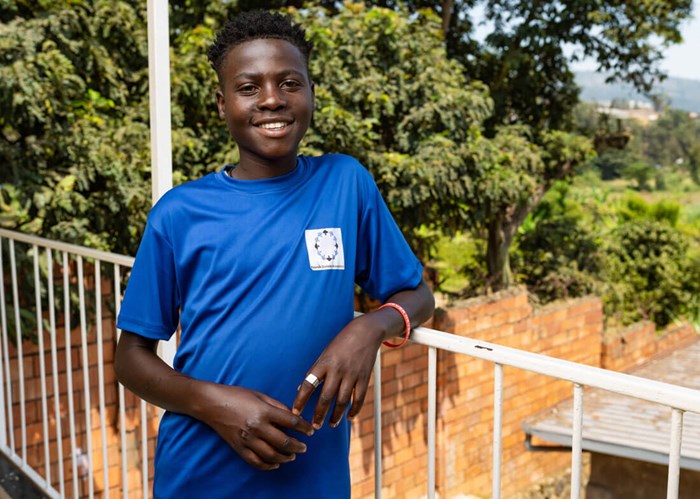International eyecare charity Orbis has been selected as a winner of the 2023 Amazon Web Services (AWS) IMAGINE Grant, a public opportunity open to non-profit and charitable organisations in the UK and USA who are using technology to solve the world's most pressing challenges.
The grant will support Orbis' efforts to deploy its AI-assisted technology in low-resource areas to screen for two eye diseases that can lead to irreversible blindness: diabetic retinopathy and glaucoma. This technology will redefine what is possible during vision screening processes for communities in low-and middle-income countries.
Now in its sixth year, the AWS IMAGINE Grant programme provides vital resources to non-profit organisations looking to deploy cloud technology as a central tool to achieve their charitable goals. As part of the program, AWS seeks proposals for big ideas on how to leverage technology in new and innovative ways to accelerate impact in local and global communities. Since the launch of the IMAGINE Grant program in 2018, AWS has awarded over $7M (£5.5m) in unrestricted funds, AWS Promotional Credits, and AWS training support to 89 non-profit organisations in support of their technology-driven goals.
"Cybersight AI, Orbis's state-of-the-art technology, is a proven, effective and accessible technology to screen for diabetic retinopathy and glaucoma," said Nicolas Jaccard, Orbis Principal Architect, Telehealth and Program Technology. "The tool analyses images of the back of the eye and, within seconds, indicates whether the patient shows signs of glaucoma or diabetic retinopathy. This technology is more scalable, cheaper and faster than current models that require a human grader. With this grant, Orbis will expand this revolutionary tool to more areas without access to quality eyecare."
Recent Orbis studies show Cybersight AI leads to patients' increased uptake of referral services and high levels of satisfaction The technology has also been shown to be equally effective for children with diabetes as it is for adults. Over the past three years, using AWS cloud services, Orbis built Cybersight AI and deployed the technology in partner hospitals in Rwanda and Vietnam. Now, with expanded support from AWS, Orbis is establishing a new implementation of Cybersight AI in the AWS Africa (Cape Town) region, which will provide improved performance for clinics across Africa.
The support from AWS will also refine existing and add new capabilities. Cybersight AI will be trained to take advantage of new, larger, and more diverse data sets, ensuring the most accurate results. The project will also add the detection of a third eye disease, diabetic macular edema, another leading cause of vision loss in people with diabetes.
Orbis' democratisation of AI will provide real-time, automated clinical advice at no cost to health facilities and their patients in low-to middle-income countries. The cost of AI-enabled healthcare platforms is typically too expensive for care providers in these communities. Due to its scalability, Cybersight AI has the potential to become the default screening method in low-to middle-income countries.
Jean, a 19-year-old with diabetes in Kigali, Rwanda, recently had his eyes screened at the Rwanda Diabetes Association clinic using Cybersight AI technology. He was relieved to know immediately that he was not showing any signs of disease. Of learning the news, he said: "I will continue taking care of myself and following the recommendation from my healthcare worker so my eyes don't get damaged from diabetes."

Diabetic retinopathy is now the leading cause of vision loss in working-age adults, and glaucoma is the leading cause of irreversible blindness worldwide. Ensuring more people with these conditions have access to early detection and intervention is key to saving the sight of millions of people.
Timely treatment of diabetic retinopathy can reduce the risk of vision loss by as much as 98%. However, early detection and intervention are often thwarted by insufficient human resources for eye health, a lack of trained specialists to assess retinal images and limited patient access – challenges that AI screenings can help communities overcome. The health, education and economic impact of vision loss is devastating, particularly for people in the poorest communities. Continued investment and innovation in eyecare is urgent.



